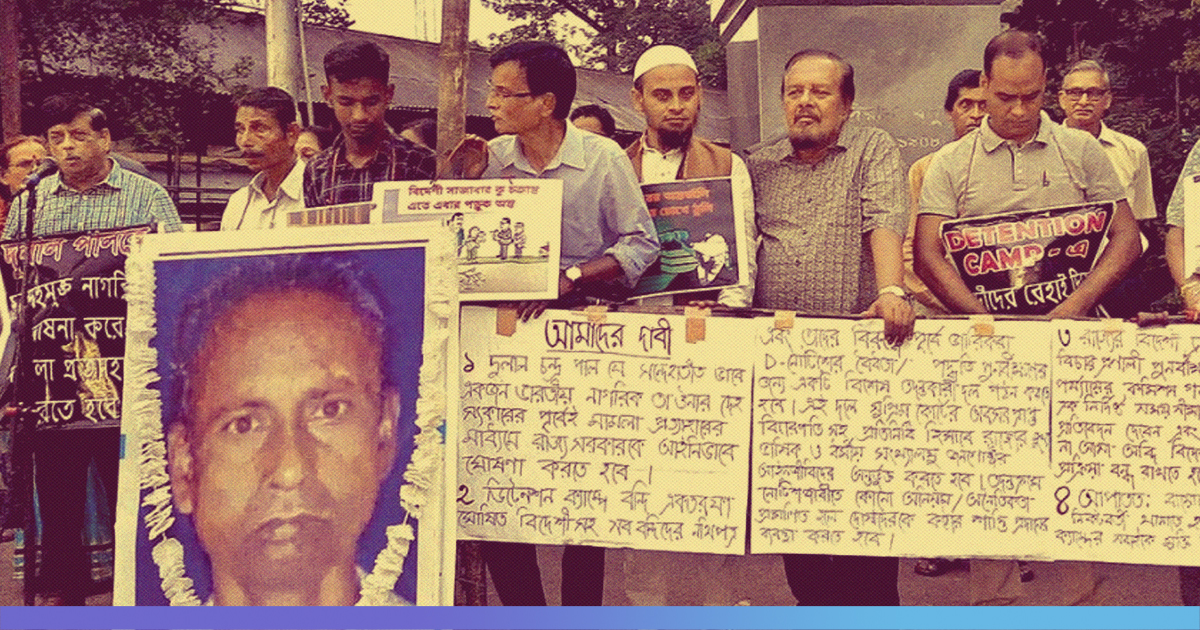
28 Deaths In Assam Detention Camps, Yet Living Conditions Remain Poor, Medical Help Absent
26 Dec 2019 12:31 PM GMT
In the recently concluded Winter Session of the 17th Lok Sabha, the Centre while replying to a question posed by Congress leader Abdul Khaleque, had said that there have been 28 deaths inside the camps.
The Ministry of Home Affairs on November 27 said that 988 foreigners were lodged in six detention centres in Assam. From the year 2016 up to 13.10.2019, 28 detenues have died either in the detention centres or in hospitals where they were referred.
The government also said that 55 detainees in Assam were out of these camps, some due to their demise, some due to reasons unknown, and a few were released in accordance with Supreme Court’s order for the conditional release of those detainees who had completed more than 3 years living in detention.
However, simultaneously the government has claimed that the Government of Assam has spent ₹4.74 crores between 2009 to 2018 on detention camps.
The Ministry further claimed, “All foreigners in the detention centres in Assam are provided with the basic facilities including food, clothing, daily newspapers, a television in every ward, sports facilities, cultural programs, library, yoga and meditation. Apart from regular health checkups, indoor hospital facilities in every detention centres are also available with medical staff. The district Health Services Authorities provide medicines.”
But government’s claims stand were refuted by the detainees who have been recently released. They have a completely different story to tell. Majibur Rahman who was recently released from a detention camp said, “The food was of poor quality and my health deteriorated significantly during the course of my incarceration,”
Rashminara Begum, who was pregnant and rearing a child at the time of her detention, recounted the horrors of living in a detention camp after having been released. She said that they were kept in the company of murder convicts, and she always feared for her life and the life of her unborn child.
Begum also recounted how one mentally challenged woman amongst the detainees was beaten up for demanding food after the mealtime was over. She said that the prison staff instructed the murder convicts to thrash her.
Subrata Dey was found dead under mysterious circumstances in Goalpara detention camp. His wife, son, daughter, and mother, Anima Dey were dependent on the income from his modest tea shop, but now they are surviving with whatever they can earn by making cloth bags. All four of them have also been excluded from the final NRC.
Dulal Chandra Paul, a farmer, also died after being declared a Bangladeshi in Guwahati Medical College and Hospital. He lived two years in the detention camp and passed away this year in September. His family refused to accept his body for the last rites and asserted that the centre give his body back to the ‘country he came from’, pointing out the poignant irony.
It was only after chief minister Sarbananda Sonowal assured the family of legal assistance to fight his case that they performed the last rites, nine days after his death. Speaking to Hindustan Times, Paul’s nephew said, “How can we accept the body if he is a foreigner? Despite him having legal documents showing he was an Indian, he was declared a foreigner.”
Also Read: PM Modi Says India Has No Detention Centres, We Visited One In Bengaluru’s Backyard
 All section
All section













